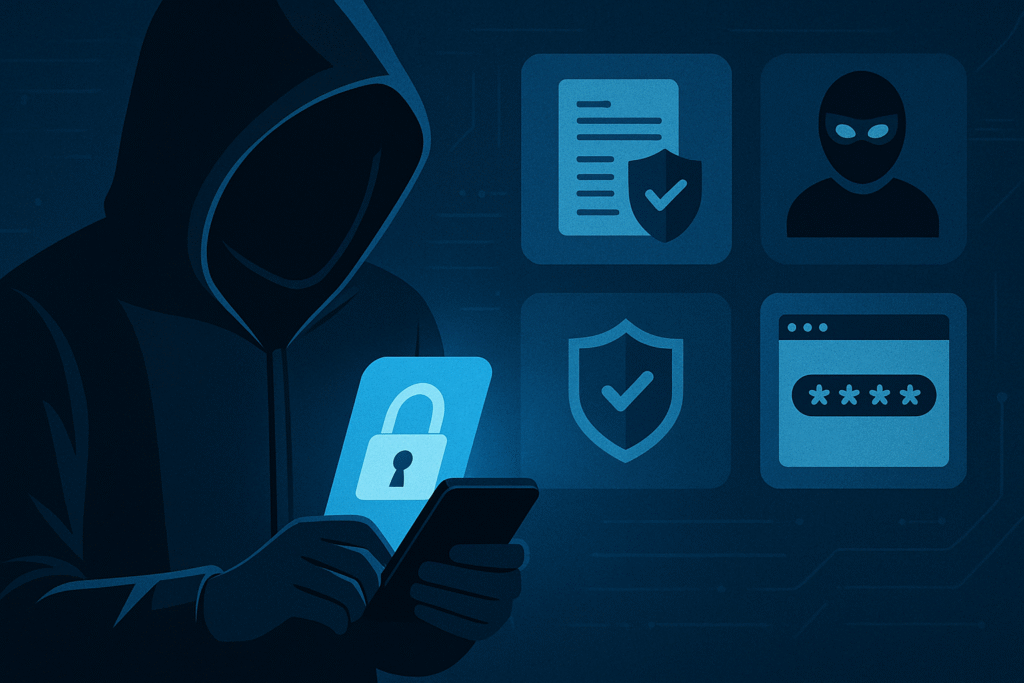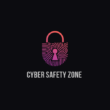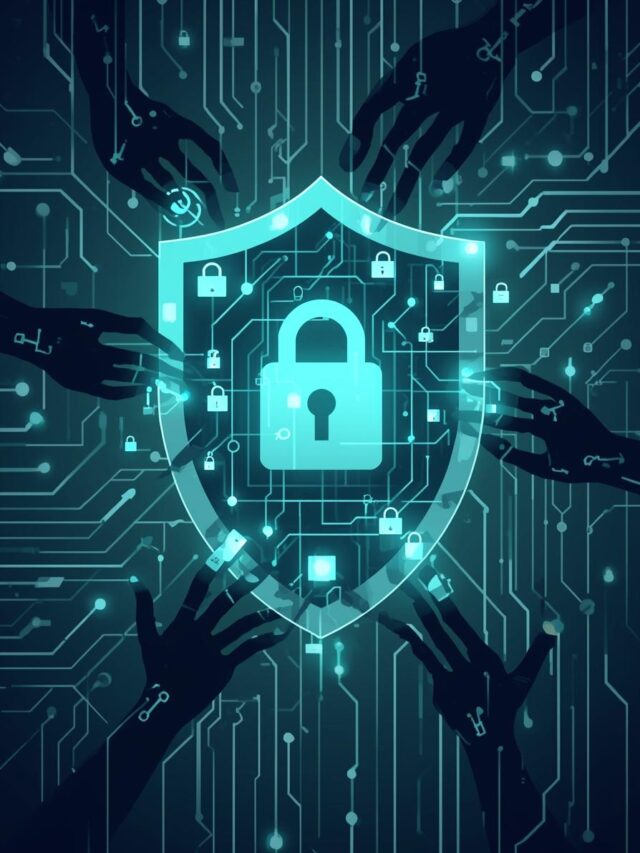

Table of Contents
how to protect personal data from exploitation is no longer just a concern for tech experts — it’s a critical skill every American needs in 2025. From online shopping to social media, personal data is constantly being collected, stored, and shared, often without our full awareness. Cybercriminals, data brokers, and even legitimate companies can exploit this information for profit or malicious intent. Learning how to safeguard your data isn’t only about privacy — it’s about protecting your finances, identity, and peace of mind.
Lets check the visual summary of this blog
1. Use Strong, Unique Passwords and a Password Manager
A basic but crucial way to protect personal data from exploitation is by creating unique passwords for every account. Avoid reusing the same password across platforms—if one account is compromised, others can be too.
Tools like password managers (e.g., LastPass or Bitwarden) can help you create and store strong credentials securely.
2. Enable Two-Factor or Multi-Factor Authentication (2FA/MFA)
Two-factor authentication adds an extra layer of protection. Even if someone steals your password, they won’t be able to log in without the second verification code.
Major platforms like Google, Facebook, and Microsoft offer built-in 2FA settings—turn them on today to protect personal data from exploitation effectively.
3. Update Your Software and Devices Regularly
,how to protect personal data from exploitation is no longer just a concern for tech experts — it’s a critical skill every American needs in 2025. From online shopping to social media, personal data is constantly being collected, stored, and shared, often without our full awareness. Cybercriminals, data brokers, and even legitimate companies can exploit this information for profit or malicious intent. Learning how to safeguard your data isn’t only about privacy — it’s about protecting your finances, identity, and peace of mind.
1. Use Strong, Unique Passwords and a Password Manager
A basic but crucial way to protect personal data from exploitation is by creating unique passwords for every account. Avoid reusing the same password across platforms—if one account is compromised, others can be too.
Tools like password managers (e.g., LastPass or Bitwarden) can help you create and store strong credentials securely.
2. Enable Two-Factor or Multi-Factor Authentication (2FA/MFA)
Two-factor authentication adds an extra layer of protection. Even if someone steals your password, they won’t be able to log in without the second verification code.
Major platforms like Google, Facebook, and Microsoft offer built-in 2FA settings—turn them on today to protect personal data from exploitation effectively.
3. Update Your Software and Devices Regularly
Cybercriminals often exploit outdated software vulnerabilities. Regularly updating your phone, computer, and apps is one of the easiest ways to protect personal data from exploitation.
4. Use a VPN on Public Wi-Fi
Public Wi-Fi networks are easy targets for data thieves. A virtual private network (VPN) encrypts your connection and hides your IP address—essential for safe browsing in cafes, airports, or hotels.
5. Limit What You Share and Follow Data Minimization
Many people unknowingly expose themselves to cyber threats by oversharing. To protect personal data from exploitation:
Restrict who can view your posts and personal details.
Avoid posting your full birth date, home address, or travel plans.
Review privacy settings on Facebook, Instagram, and LinkedIn.
6. Review Your Privacy Settings
Regularly update privacy settings on social media, apps, and browsers. Switch profiles to private, limit location and data tracking, and regularly reassess permissions—especially after app updates or policy changes
7. Be Alert for Phishing and Suspicious Links
Phishing scams have become more sophisticated. Always check sender details, avoid urgent or emotional prompts, and never click unknown links or attachments.
8. Keep Backups — Not Just for Convenience
Ransomware, hardware failure, or theft can all result in data loss. Regularly back up important files—both in the cloud and offline—so you can recover quickly without paying a ransom
9. Opt for Secure Communication Tools
Use apps with end-to-end encryption—like Signal or ProtonMail—when exchanging sensitive data. These tools ensure only you and the recipient can access the content
10. Monitor Breach Alerts and Freeze Credit if Needed
Sites like Have I Been Pwned let you check if your email or passwords have been compromised. If they have, change your credentials immediately, monitor accounts for signs of misuse, and consider placing a fraud alert or credit freeze with bureaus.
11. Think Ahead: Privacy by Design
Whenever possible, choose services or platforms that embed “privacy by design”into their structure—features like secure defaults, transparent data policies, and end-to-end security from the start help ensure your data remains protected.
12. Know Your Rights — U.S. Privacy & Data Protection Laws
Under frameworks like the FTC Fair Information Practice Principles, organizations must inform you about what data they collect, how it’s used, and with whom it’s shared ([Wikipedia][16]). Financial institutions are bound by the Gramm-Leach-Bliley Act—which mandates privacy notices and opt-out options for information sharing
Why This Matters Now (2025 Context)
In 2025, recent trends—from massive password breaches affecting Apple, Google, and Facebook users to flawed apps leaking sensitive info—highlight why how to protect personal data from exploitation matters more now than ever.
Conclusion:
To sum up, how to protect personal data from exploitation involves a mix of vigilance and proactive habits:Use strong passwords + MFAKeep software up to dateEmploy a VPN when neededLimit what you shareMonitor privacy and use encrypted toolsBack up data and stay informed aboutThese steps help you assert control over your online privacy and stay ahead of cyber threats.
Further Reading & Resources:
- Learn more about privacy-by-design at Wikipedia’s Privacy by Design.
- Check FTC privacy guidelines: FTC Fair Information practice
- See how to secure communication online: Wired’s Guide to Protecting Your Data
Hope you find this article useful, you may also like this :How Freelancers Can Protect Client Data Without IT Team (2025)
1. What does it mean to protect personal data from exploitation?
Protecting personal data from exploitation means taking measures to prevent hackers, scammers, and unauthorized organizations from using your sensitive information for financial gain, identity theft, or surveillance.
2. Why is it important to protect personal data from exploitation in the USA?
In the USA, cybercrime rates are rising, and companies often collect large amounts of personal information. Learning how to protect personal data from exploitation is crucial to avoid financial loss, fraud, and privacy violations.
Written by Cyber safety Zone, a U.S based cybersecurity blogger helping freelancers stay safe.When I’m not writing ,I test new security tools and VPNs to find what really works.

